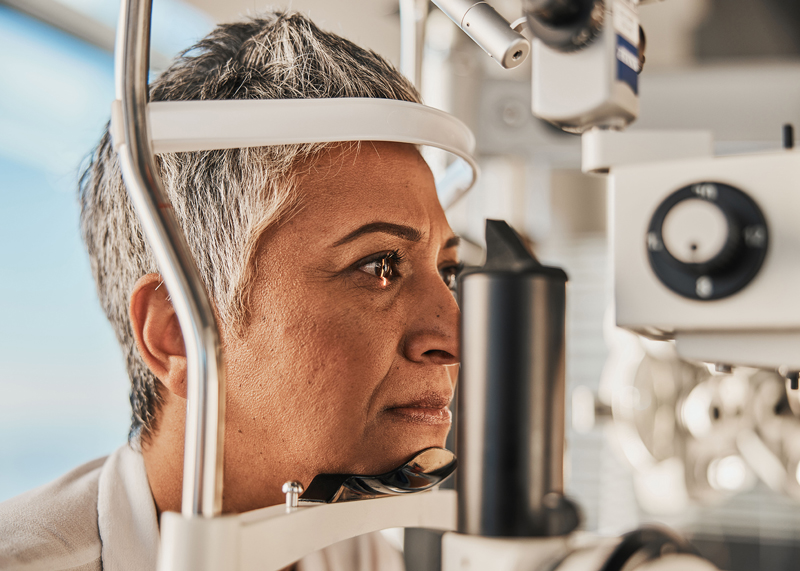Low Vision Care

Understanding Low Vision Care
Low vision can impact detail vision for activities such as reading, recognizing faces, seeing signs, and driving, and also impact side vision for walking, reading and hand-eye coordination.
Low vision aids and care from a low vision specialist can assist with daily activities that may be impacted by low or reduced vision.
Individuals experiencing reductions in their vision, due either from genetic, disease, or injury causes, will benefit from visiting two different eyecare providers. Medical Eye Specialists are ophthalmologists who will manage the disease aspects of their vision condition, and Low Vision Specialists are optometrists or ophthalmologists who will help individuals living with low vision maximize their remaining useful vision.
Finding a Low Vision Specialist
If you do not already sse a low vision specialist, ask your eyecare provider for a referral or use our locator to search for a provider nearest you. Please note that not all low vision specialists can be found on this provider listing.
You can also search online for a low vision specialist in your area using the following terms:
- Low vision specialist
- Low vision aids
- Low vision care
- Vision loss
- Vision rehabilitation
Your Low Vision Appointment
A low vision exam is provided by a professional that specializes in low vision care. In addition to reviewing your medical history, the low vision specialist will explore the visual difficulties you are having and what activity goals you desire to improve.
Goals you may want to improve may include:
- Reading
- Walking
- Seeing at a distance
- Watching television, movies, theater
- Visiting museums and exhibits
- Doing household and kitchen activities
- Using the computer
- Attending school
- Attending religious activities
- Seeing better in the work environment
- Engaging in social activities with family and friends
- Traveling independently and perhaps driving
All these functional goals may be able to be addressed with low vision care.
Ongoing Care
Low vision care is a process—it includes testing one’s current level of vision, identifying and evaluating appropriate treatment options to address the individual’s goals and determining the training and practice required to become efficient with the choices selected. Learning to use low vision aids usually requires patience and perseverance.
Information about the prognosis for the individual’s specific vision loss along with counseling for coping with the emotional aspects of visual impairment is an important and valuable part of providing comprehensive low vision care.
